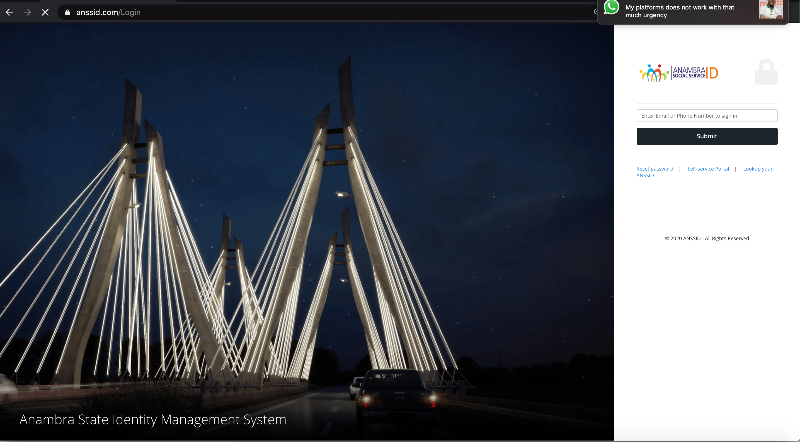Brief history of ANSSID
In 2017 Appmart Integrated Limited, an indigenous software development company proposed a unique identity management system to Anambra state internally generated revenue. The project was initially for the purpose of increasing the tax base of the state. The contract was awarded by the board of internal revenue (AIRS), same year.
The identity management automation was not effectively utilised by the state. Thus,
the level of progress and the number of people captured in the database were low. But it wasn’t until February 2018, when the newly appointed chairman of AIRS Dr. David Nzekwu, came on board and instituted a new committee to review the progress of the project and come up with a new idea to drive the target of achieving 500,000 registered citizens in two years and 3 million in four years.
The committee, headed by the chairman, decided to expand the project to include all Anambra citizens both home and abroad.
The project object was also changed from only tax facing to social benefits for all citizens. It became the single identity to access government services. Thus, it was
re-branded ANSSID -- Anambra State Social Identification Number.
The registration process started with all Civil Servants in the state and gradually extended to every sector including the markets, company staff and MDAs etc in the state.
The committee also decided to change the verification technology from fingerprint to facial technology, which made it possible for people to enroll into the platform from the comfort of their homes anywhere in the world. The new concept of facial biometrics was finally deployed in April 2019.
Implementation strategy
To ensure that the project was successful, the following policies and measures were
put in place;
- In April, 2019 the chairman of AIRS made it compulsory that all transactions
conducted by any taxpayer with the state government must be done using the
unique ANSSID number. This prompted taxpayers to register and obtain the
ANSSID number before any payment of government service in the state. - The SSA to the state government on IGR Okey Anyanyo was given a mandate
to ensure that by December 2019, 200,000 taxpayers were registered on
the ANSSID platform. By December 2019, about 235,000 taxpayers were duly
registered on the platform and this was achieved by training Npower staff,
NYSC members and civil servants on the use of the platform and were sent to
the 21 LGAs in the state to help in registering every citizen in those LGAs. - All parents in the state were asked to present their ANSSID before registering
the wards in the state and private schools. - All traders in the markets in the state where mandated to pay government
revenues using the ANSSID. - You will need your ANSSID to obtain any government services in government hospitals, waste collections etc.
Achievements
ANSSID platform ensures that the information provided is unique, reliable,
authentic, and also helps in creating a reach database of citizens of the state.
This information helps the government in proper budget planning and the provision of social services.
It is not in doubt that since the introduction of the ANSSID project, there has
been a significant increase in the IGR of the Anambra state government. Through co-operations amongst ANSSID, Paydirect and the ICT department of the AIRS
the state now has a uniformed central system where all information about any residents can be easily retrieved.
The unique design of the platform also ensures ease of registration from anywhere in the world and also eliminates duplication of information on the platform. The system has also assisted greatly in security-related issues in the state. rachat de voiture hs sans controle technique
As at today, there are over 300,000 citizens registered on the ANSSID platform and the number is growing. The system now captures more than 1,000 Anambra citizens daily.
At this rate the Board chairman is well on track to achieving his target of 500,000 citizens on the platform by December of 2020. Which will be a big milestone for the state government to have clean data of its citizens and be able to extract information at a click of a button.





















